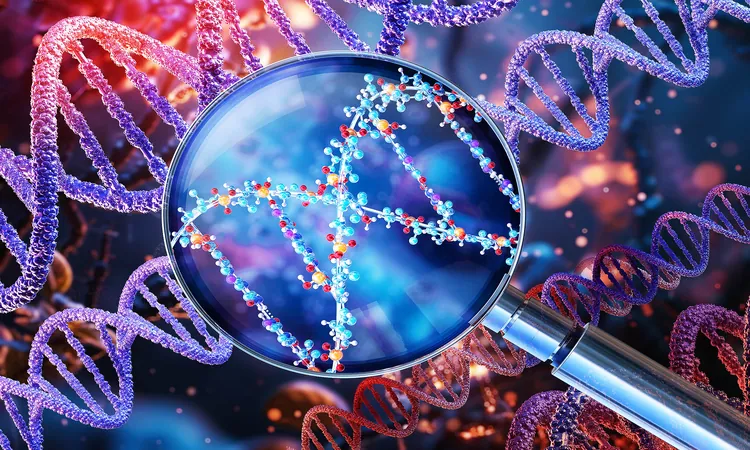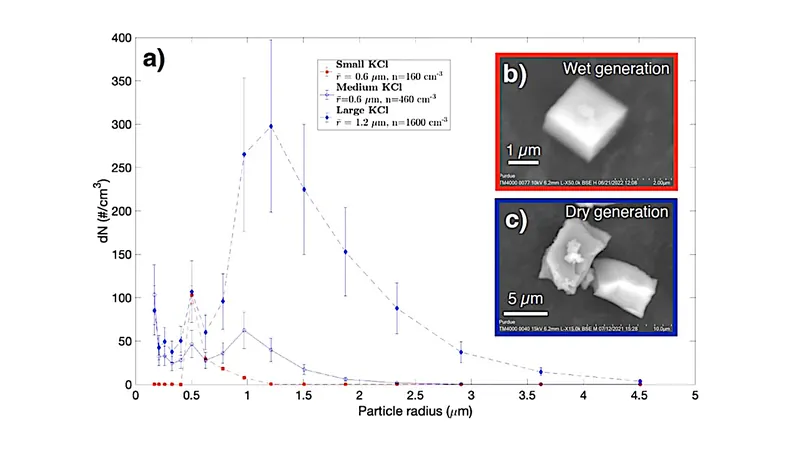
Shocking New Study Reveals Perimenopause Doubles Women’s Risk of Bipolar Disorder and Major Depression!
2024-10-30
Author: Siti
Introduction
Recent groundbreaking research has unveiled alarming findings linking perimenopause—a transitional phase leading up to menopause—to a staggering increase in the risk of developing serious mental health conditions, such as bipolar disorder and major depression. Women experiencing this transitional phase are more than twice as likely to face bipolar disorder for the first time, according to a comprehensive study that sheds light on an area often overlooked in mental health research.
Understanding Perimenopause
Contrary to popular belief that menopause is a singular event occurring around the age of 50, it is, in fact, a gradual process, typically starting between the ages of 45 and 55. Perimenopause can last several years, and during this time, women endure significant hormonal fluctuations that can disrupt their menstrual cycle. Common symptoms include debilitating hot flashes, night sweats, mood swings, and irregular periods. However, it is the profound impact of these hormonal shifts on mental health that has remained largely under-explored.
Motivation for the Study
Motivated by questions raised in a mental health clinic led by Professor Di Florio, where many patients experienced unprecedented psychiatric episodes during perimenopause, researchers sought to investigate the link between these hormonal changes and mental health outcomes. Notably, many women had never previously encountered severe psychological issues, suggesting a connection to the perimenopausal phase that had not been adequately documented in previous studies.
Methodology and Findings
Utilizing the extensive UK Biobank database, which encompasses anonymous medical and genetic information from over half a million volunteers, the researchers examined psychiatric conditions emerging during the perimenopausal stage. Their study analyzed data from 128,294 women to compare new psychiatric occurrences during perimenopause against those recorded in the late reproductive stage. The results confirmed widespread concerns: new cases of bipolar disorder surged by an astonishing 112%, and major depressive conditions saw a 30% increase among women in the perimenopausal phase compared to their earlier reproductive years.
Importance of the Study
This research marks the first of its kind to directly correlate the onset of bipolar disorder with the perimenopause period, lending validation to the experiences of countless women who previously felt unheard and unrecognized in the medical community. Despite emerging evidence, the precise mechanisms linking hormonal changes during perimenopause to mental health disorders remain unclear. There are hypothesized factors regarding how these hormonal shifts can trigger such drastic changes in mood and behavior.
Call for Further Research
Therefore, researchers call for further investigations to identify effective treatments and preventative strategies for these vulnerable women, emphasizing the importance of prioritizing mental health during this critical transition. The hope is that this significant study will inspire increased awareness and research into women’s mental health throughout perimenopause, leading to a deeper understanding of the biological processes at play and improved support for those affected.
Conclusion
Will this new knowledge herald a shift in how we approach women's mental health, particularly during life-altering transitions? Only time will tell.




 Brasil (PT)
Brasil (PT)
 Canada (EN)
Canada (EN)
 Chile (ES)
Chile (ES)
 España (ES)
España (ES)
 France (FR)
France (FR)
 Hong Kong (EN)
Hong Kong (EN)
 Italia (IT)
Italia (IT)
 日本 (JA)
日本 (JA)
 Magyarország (HU)
Magyarország (HU)
 Norge (NO)
Norge (NO)
 Polska (PL)
Polska (PL)
 Schweiz (DE)
Schweiz (DE)
 Singapore (EN)
Singapore (EN)
 Sverige (SV)
Sverige (SV)
 Suomi (FI)
Suomi (FI)
 Türkiye (TR)
Türkiye (TR)